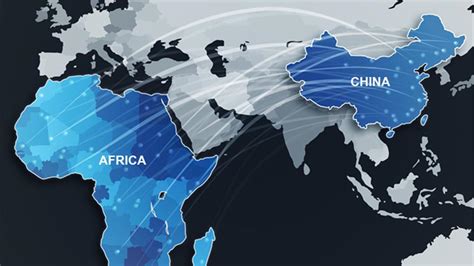
Cracks in Afro-Sino Partnership?
China’s active presence in Africa has been polemical, resulting in an array of divisive opinions over the nature and motivation, driving China’s interest on the continent. Despite the scepticism over the partnership, China has presented itself to the leaders of the continent as a partner that adheres to the principle of ‘giving more and taking less’— a principle which resonates well with the leaders and is perceived to be in contrast with Africa’s cooperation with the West due to her colonial past; one which many believe continues to shape the nature of their collaboration.
China’s engagement based on the principles of equality and a mutual win cooperation with Africa, seems apparent evidenced by the creation of a platform for cooperation known as The Forum on China-Africa Cooperation (FOCAC) to align with achieving the aspirations set out in China’s belt and road initiative as well as African Union’s Agenda 2063. The partnership between China and the various African countries has undoubtedly presented opportunities for economic and infrastructural development as well as human resources development/ capacity building in line with the agenda 2063. It has however not being devoid of questions being raised over the genuineness of China’s proposed friendship to the continent. For instance, in some African countries such as Djibouti, the spiralling debt by the finance of infrastructural development projects has come at a cost. China’s acquisition of major stakes in the country due to default in loan payments has solidified distrust by some over the intentions behind China’s activities in Africa.
As China continues to invest in the continent on the basis of a ‘win-win cooperation’ and equal partnership, African countries have also exerted some agency to ensure there is reciprocity in this partnership, embracing the spirit of brotherhood consisting of solidarity and support between the continent and China. This is clear in Equatorial Guinea’s contribution of $2 million to support China in their fight against the coronavirus outbreak and similarly, China’s donations of medical supplies to some African countries to assist in their fight against the pandemic.
This notion of ‘mutual respect’ and brotherhood buttressing Afro-Sino collaboration, has however shown some cracks following the recent wave of racism towards the African community in Southern China. Viral videos on social media revealing the demonisation and inhuman treatment being meted out to Africans, following fears of new imported coronavirus cases in China have been met with widespread anger and criticism. The ongoing incidents of harassment of Africans have undeniably accentuated the anxiety, suspicion and distrust of China’s agenda in Africa. The maltreatment has also led to the stirring up and re-surfacing of anti-China resentment in Africa towards China.
The outbreak of the coronavirus has revealed an ugly truth— fear often drives xenophobia. This is apparent in the harassment in Southern China of Africans due to the fear of a second wave of imported coronavirus cases. In the same vein, videos surfaced online showed the rise of discrimination and anti-Chinese rhetoric in some African countries towards Chinese people, due to fear of contracting the virus. Nonetheless, the fear of the Chinese in Africa following the pandemic outbreak does not measure up to the severity of harassment currently being faced by Africans in China. Furthermore, the specific targeting of solely Africans but no other migrant group depicts that there may be deep seethed prejudice against Africans in China.
The current controversy of the overt discrimination and targeting of Africans is said to be rooted in pre-existing prejudices towards Africans in China, based on perceptions and stereotypes of the continent — a significant factor in the distrust of China’s engagement on the continent by some. What this brings to light is that although the collaboration between the two parties is maintained at the governmental level, negative attitudes towards Africa and its people in China and its consequent reactive response by Africans, does not reconcile with the solidarity and brotherhood being pushed at the governmental level. Negative attitudes and perceptions held at the local level from both sides have exhibited a fracture in the partnership.
The South-South cooperation embraced due to the history of colonisation shared, is similarly a reason for the mistrust, suspicion and weariness of China’s presence on the continent which has been perceived as imperialist and neo-colonialist. The ongoing treatment of Africans has opened up fears and doubts over the ‘mutual respect’ backing the cooperation. Despite the alliance between the Chinese government and various African governments providing a good opportunity for socio- economic growth on the continent, the display of the lack of respect for Africans as recently exhibited by locals has undermined diplomacy efforts in Africa and has further been damaging to China, whose intentions in Africa are already being questioned.
Moving forward, the Chinese government’s response to the situation at home will be pivotal in Africa-China diplomatic efforts. For some, the situation has confirmed and heightened anxiety over China’s growing dominance on the continent. It appears to have opened up a crack in the partnership, which may become wider if the situation is not addressed carefully. If handled well by the Chinese government, it would restore faith of solidarity, respect and brotherhood at the diplomacy level with African governments. However, it may not completely change skeptic attitudes among Africans concerning relations with China at present.